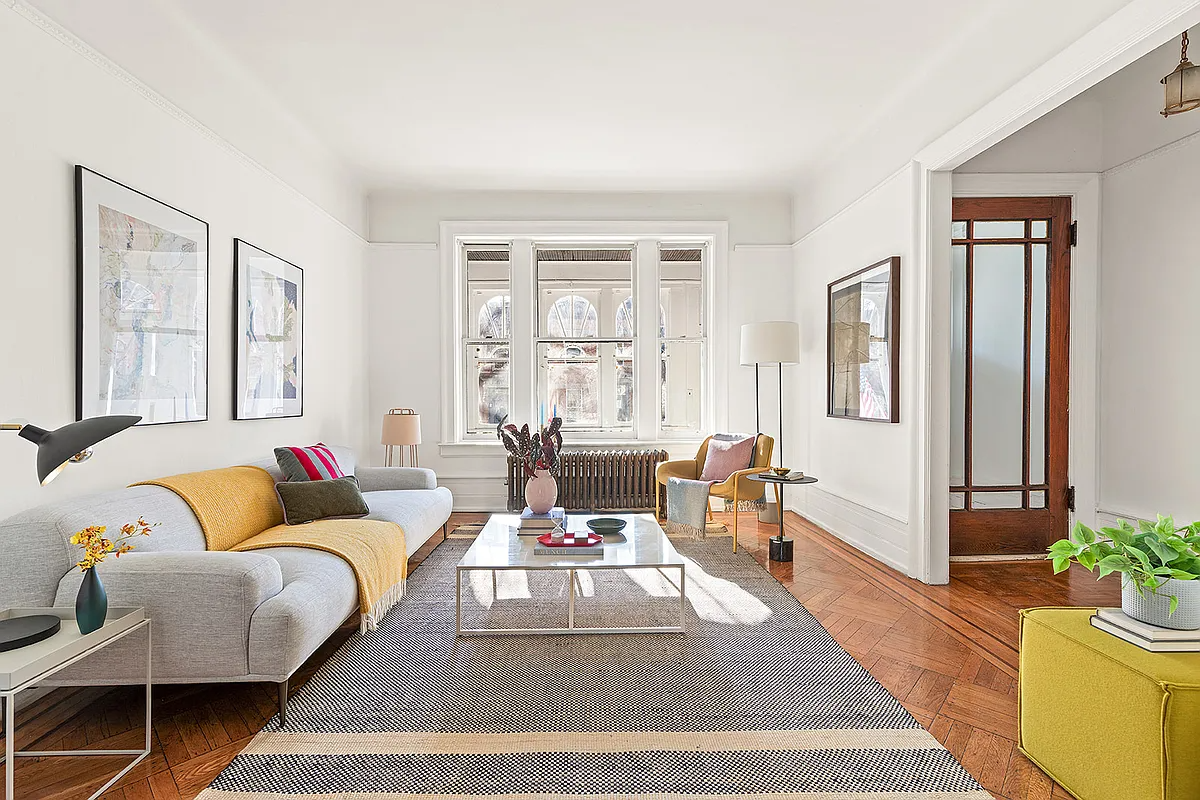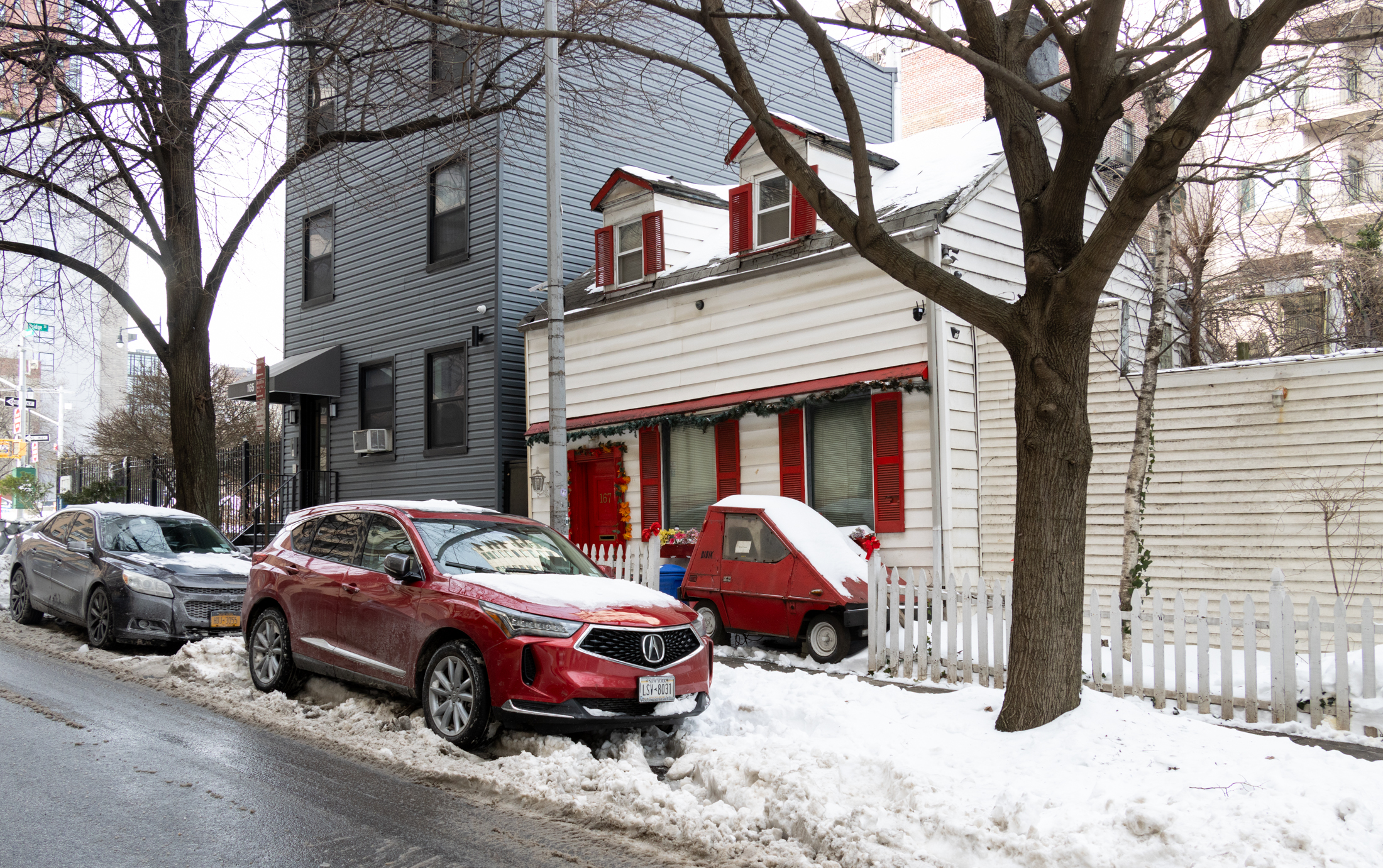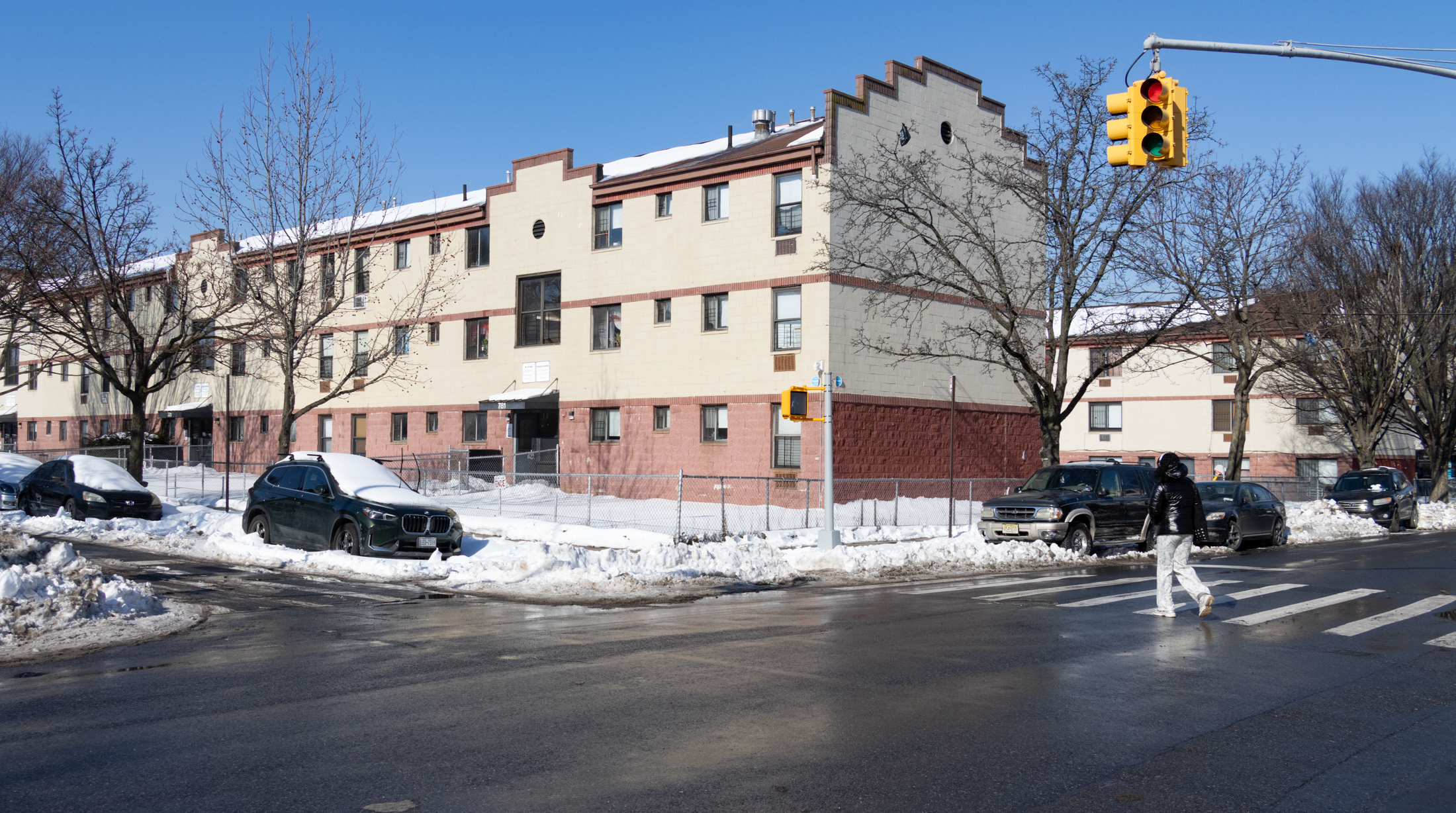These Aren't Your Parents' Buyers
Guess what? Apparently this whole Internets thing is having a broad impact on how today’s twenty- and thirty-somethings go about buying an apartment. Daniel and Luciana Hyman, above, did online research on more than a hundred buildings in Manhattan before settling on a $875,000 two-bedroom co-op in Midtown. That sounds like nothing in comparison to…


Guess what? Apparently this whole Internets thing is having a broad impact on how today’s twenty- and thirty-somethings go about buying an apartment. Daniel and Luciana Hyman, above, did online research on more than a hundred buildings in Manhattan before settling on a $875,000 two-bedroom co-op in Midtown. That sounds like nothing in comparison to the page-and-a-half financial analsyis that one young Goldman Sachs banker submitted with her bid in an effort to convince the developer to accept her 11-percent-below-offer bid. (He didn’t.) We’re more comfortable with taking on debt and paying tomorrow, Mr. Hyman said, displaying the kind of blind optimism that seems to characterize many buyers today. If the cards topple, you can rent your place out and go somewhere cheaper. Or, if you are among the 65 percent of first-time home buyers that finance more than 95 percent of the purchase, maybe you shouldn’t be too worried. You can always walk away from your small deposit if the market crashes, right?
Young Buyers, Prepared and Fearless [NY Times]





anon 10:42:
I am not gonna argue with you – timing was a very lucky factor, and I certainly could not afford my apartment today – a mere 2 and a half years after I bought it. (Though I was very nervous about a market peek when I was hunting in 2004).
Admittedly, If I was in the same position today and not owning, I would seriously consider aggressive investing in stocks and moving to a more ‘edge’ rental in order to rapidly build capital. Alternately, I would have to look at 2nd tier neighborhoods (in my own book).
Timing is precisely the kind of thing that the buyers in the article haven’t hedged against. In 04 I was able to get a place i could stay in for 30 years if i had to, and was able to do it at the limit (and it really was the limit) of what conventional financing could do. If it had peaked then in 04, I could continue to live in the place and not be forced to sell or rent – though my long-term desire to upgrade would take a hit. If I did it with exotic financing, i would really be in trouble.
I’m one of those people who aren’t afraid to take on a lot of debt in the NYC r/e market. I’m not at all worried about NYC or Brooklyn prices in the 5-10 year term. As long as you can comfortably afford the mortgage payments and can aggressively pay down the non-80% portion of the mortgage, buying is almost always a smart move. You just need to know what you are getting into. For example, I know that in order to “break even” (including brokers fees, the money I’m losing by not investing my down payment etc.) the apartment I bought needs to rise in value on average about 3%/year over the next five years if I want to move in five years. I’m confident the market will do that, and if not, we just won’t move in five years.
I agree with what others have said here–if you can’t afford the mortgage payments on a conventional loan, using some exotic loan to bet on the real estate market if foolish.
one difference: our parents couldn’t afford $875K apartments in their 20s. my (successful suburban) parents would have difficulty doing it now.
I don’t worry too much about the Wall St folks. But the williamsburgh IO woman is a tougher issue and one reason why some of us don’t like condos. If the market dips and they can’t sell in five years, it will be rental tenants at best in there to cover owners’ mortgages — or foreclosures at worst.
Co-ops maybe a pain at times, but they are a safer bet.
this must be a new thread. where are all the comments about how if you’re reluctant to buy cause you would have to take on crushing levels of debt to do so, you’re a pathetic, sorry-ass loser/hater/renter who has no life and has totally missed the boat and everyone else is going to get rich rich rich while you sit on the sidelines whining and wringing your hands about the real estate armaggedon which is never going to happen in nyc cause real etsate prices only go up and people only get paid more and more and fatter and fatter bonuses with every passing year?
I’ll be doing it the same way chickenmadness, as did my parents, but one thing you had on your side that we buyers now don’t – timing. What you bought for say 500K is now 700-800K. That’s a big difference, even with help from family. I’m not saying it was easy for you (and has never been for first timers), but imagine doing the same thing now, with a salary that’s not much higher, since incomes have not really increased all that much? And a chance of little to no appreciation in your property? Makes moving up hard and makes the risk a little less palatable to some of us. I’ll buy something but I’m just saying that the risk seems a whole lot greater in ’07 than it did in 2000.
This is my favorite part of the article, the last paragraph:
“I really think that real estate will not go down,†she said. “At the very least, it will stay the same. In the meantime, I need a place to live. So the worst-case scenario still isn’t that bad.â€
This woman paid $340,000 for a condo on the “outer edges” of Williamsberg. She plans to live in it for five years, and has a seven-year interest only ARM.
The couple in the photo is like the the epitome of the Times Vows section – he’s a banker, she’s a teacher.
I think it is smart for 20-soemthigns to stretch and buy their homes. I am certainly one who did. But you need to be smart and not throwing money away. I stretched and got a conventional mortgage – no exotic interest deals. I scrounged and borrowed from family (Yes, I am lucky – but it also was no handout) to avoid PMI. And, most importantly, I bought something that I can grow in so I won’t be forced to sell in a bad market.
I luckily bought several years ago, so built up enough equity (and didn’t borrow against it) to withstand a downturn.
And I don’t think my approach was crazy or new – my parents married young (and had me shortly thereafter), and I remember them investing in their home in their 20s with a small child. I also remember us living far from extravagant, with futons, hand me downs and foam furniture. But, over the long run, it worked out. They upgraded their home in their 30s and did well for themselves.
Sentimentality and research are important for young buyers, but so is stretching and knowing your safe limit.
I tend to agree with GrandPa and Sassy, but in all likelihood, many of the “dink” buyers will have kids, and to have mortgaged one’s future based on a lifestyle that may not be around too long to me is a little risky. I have no kids yet but am very aware of the fact that I we will soon, and I plan around that. The fact is, as someone said, people our age have never had it rough in the true sense of the word, and in many cases mom and dad have always bailed them out. What happens when mom and dad need help and can no longer do that b/c of age, illness, etc.? I don’t know, I just don’t like the road we’ve been heading down. The retirement and aging of the boomers scares me a little.